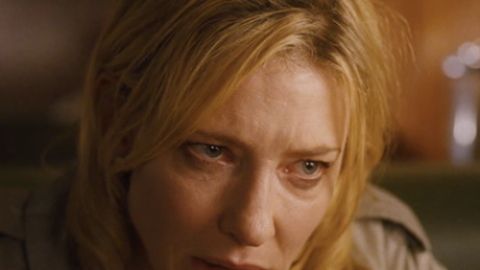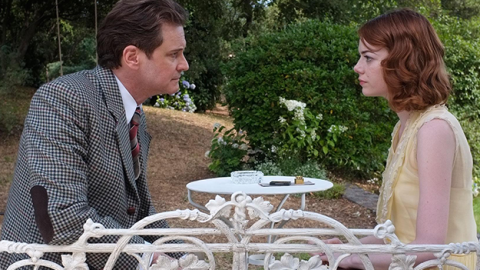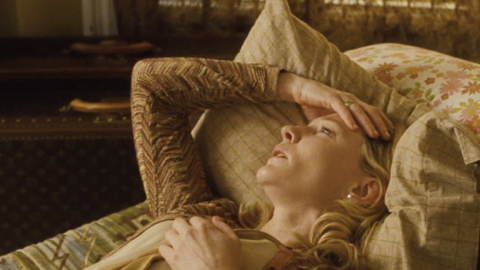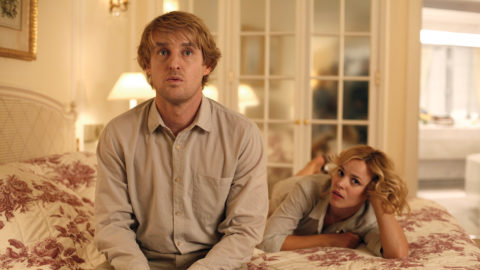
Review: Irrational Man
Many of Woody Allen’s recent movies have something of a séance air about them. It’s as if his collaborators—invariably lively and talented people—have joined hands to summon the presence of an author who nevertheless declines to manifest himself as more than a hazy signature. Allen seems somehow to have put in place machinery whereby his films bring themselves autonomously into existence, without any conspicuous creative investment on his part. For that investment really to be observable, there would have to be some discernable difference, something to make a particular film more than just “this season’s Woody Allen movie”—and the magnificent exception of Blue Jasmine (13) indeed displayed such a difference, its tragic ironies a lot keener than we’d seen in his work for a while.
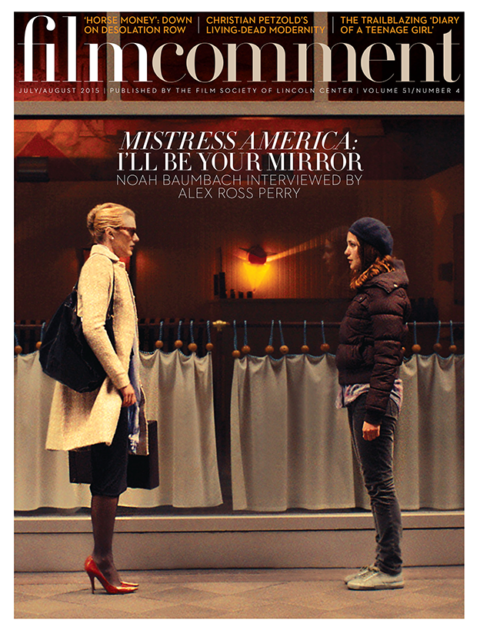
Allen’s new feature is no Blue Jasmine, though it’s a considerable improvement on the fossilized Magic in the Moonlight (14). But again, Irrational Man feels disconcertingly impersonal—all the more so as it overtly carries certain traditional marks of his patented brand, being a light-highbrow comedy of manners, peppered with bookish in-jokes. Joaquin Phoenix plays Abe, a philosophy lecturer who arrives at a new college post trailing a bad boy reputation, a lot of weltschmerz, and storm clouds of disillusionment; he once pursued his ideals by doing volunteer work in New Orleans and Darfur, but still wound up neck-deep in a morass of existential futility. “Emotionally, I was at Zabriskie Point,” he says in voiceover in the film’s best line. Now Abe is paunchy, sour, lacking in sex drive, and prone to stunts like playing Russian roulette at a student’s party.
While he starts a liaison with blasé academic Rita (a mischievous Parker Posey in her juiciest screen role in years), he’s also getting dangerously close to besotted student Jill (Emma Stone). Then Abe decides to commit a murder that he believes will both improve the world and redeem him morally—he’ll do a Raskolnikov, in other words.

The most promising theme here sustains the comedy for a while: the gap between reality and reputation, and the glamour that attaches in this stagnant bubble of college life to a depressed shlub who’s nevertheless perceived as a dark, restless romantic (it helps, of course, to cast Phoenix). But the Dostoevskian motif, when it kicks in, is pursued all too doggedly. Allen has always been fascinated with the ethics of murder, sometimes putting a specific literary-history spin on the theme, as in Match Point’s take on Stendhal; here, the source of the premise is clunkily acknowledged with the discovery of Abe’s telltale copy of Crime and Punishment, emblazoned with idiot’s-guide margin notes: “The banality of evil” (this touch is an egregious example of the banality of “the banality of evil”). It all feels like a philosophy-class exercise: “Write a simple drama arising out of ethical themes discussed this week, with special attention to ironic contradiction.”
Some lines are appallingly awkward, but if there’s self-parodic intent, it doesn’t come across: “Despair is what Kierkegaard called ‘the sickness unto death’—and you are suffering from despair, Abe.” What vibrancy there is comes not from the script but from Posey’s crackling slyness, Phoenix’s lunkish solemnity as Abe (he puts a muscular spin on that perennial Allen figure, the clueless intellectual), the tender glow of Darius Khondji’s photography, and the Ramsey Trio Lewis instrumental of “The In Crowd,” which runs throughout, pepping things up nicely. Best of all is Emma Stone, bristling with alertness. After helping make Magic in the Moonlight more palatable, she has apparently succeeded Scarlett Johansson as Allen’s resident muse; she can only make the next few films a livelier prospect than they otherwise might be.



